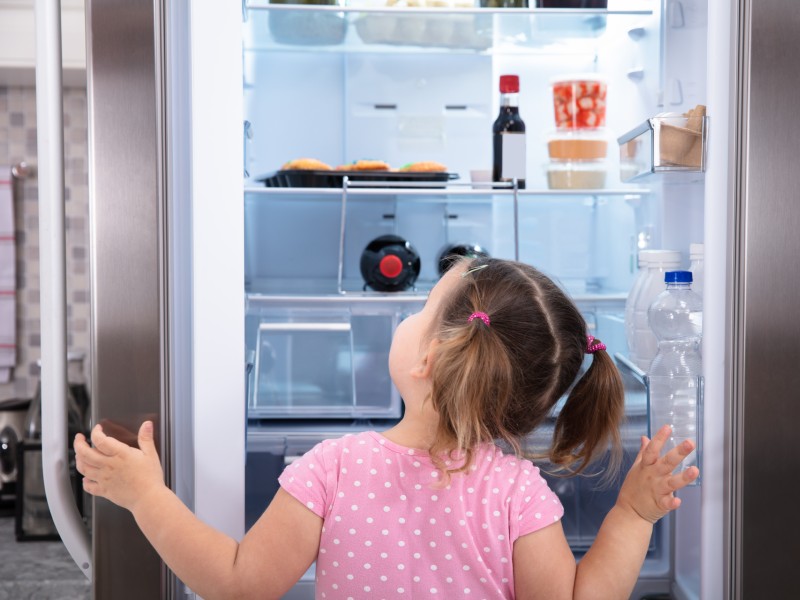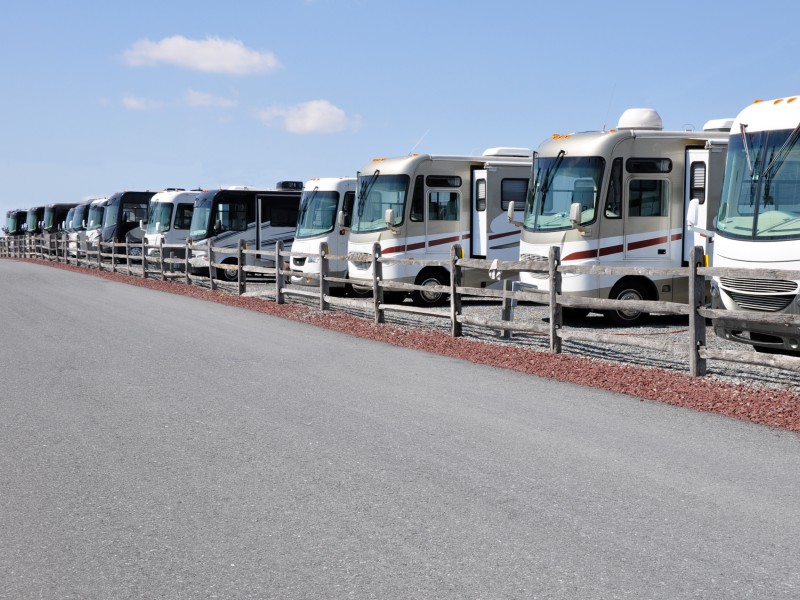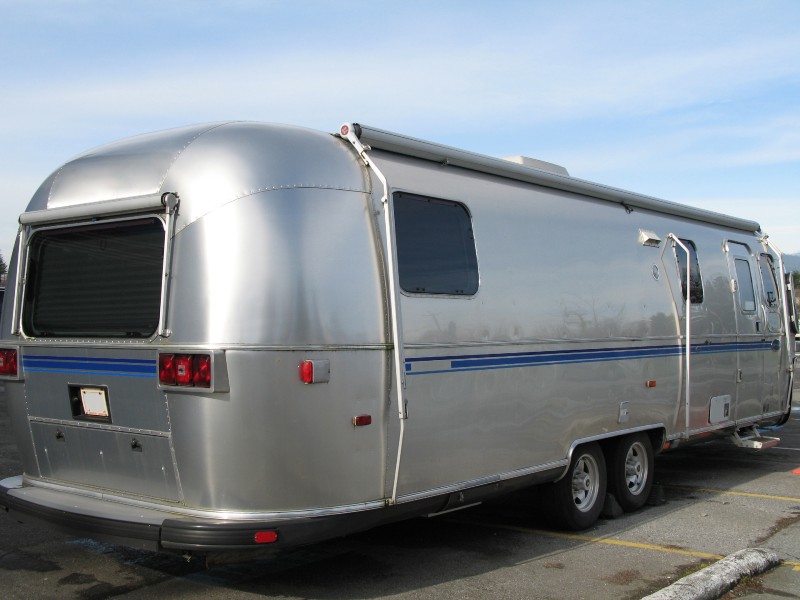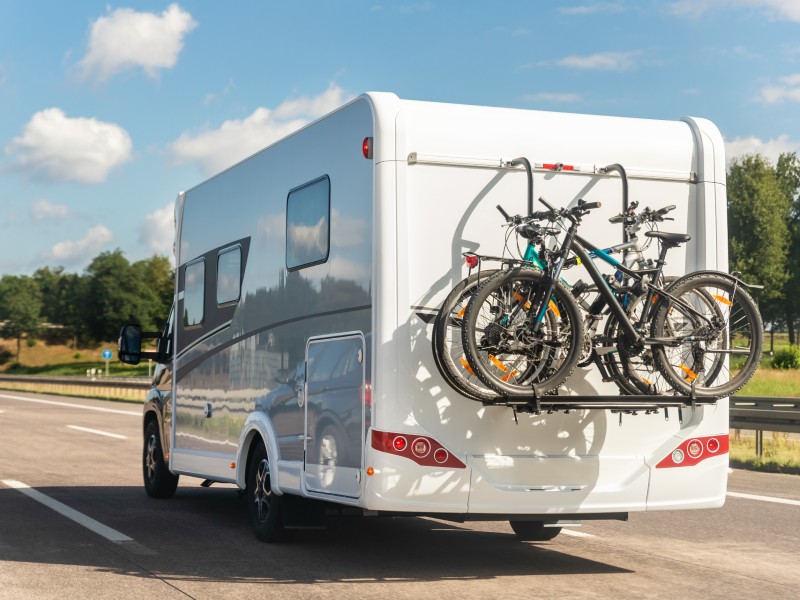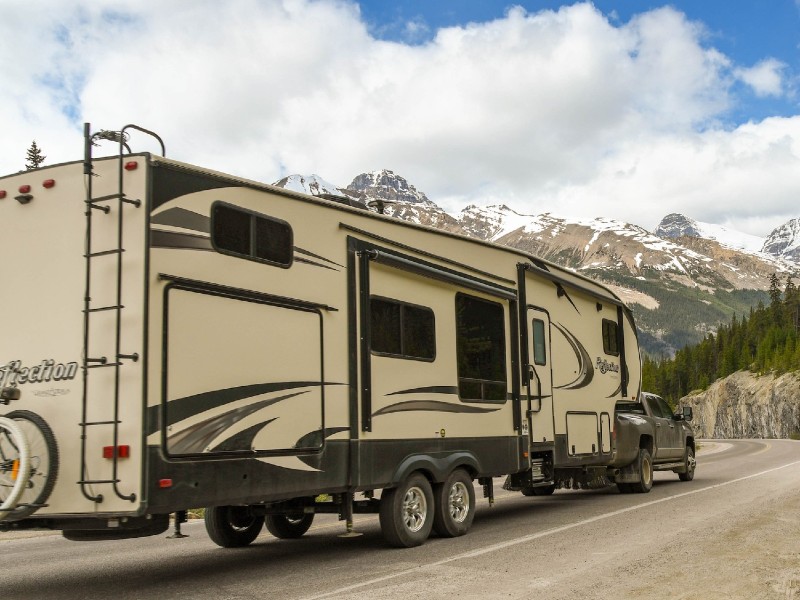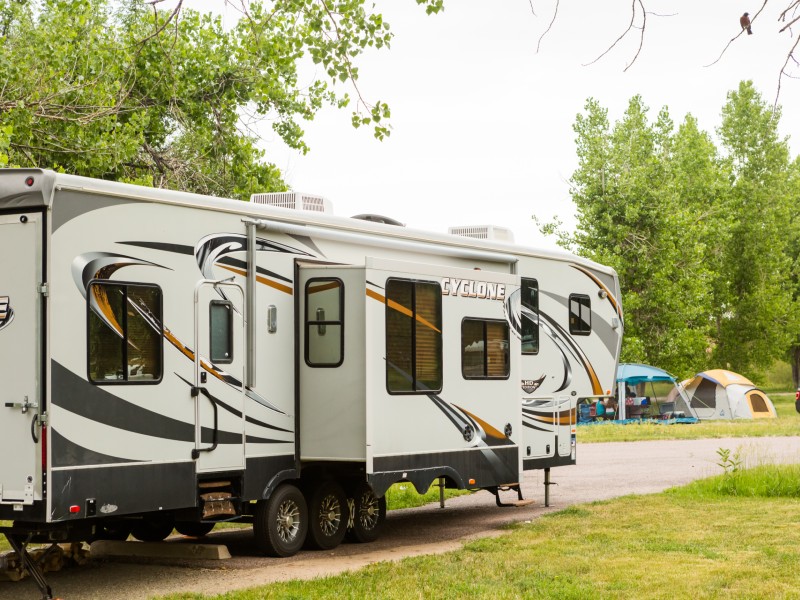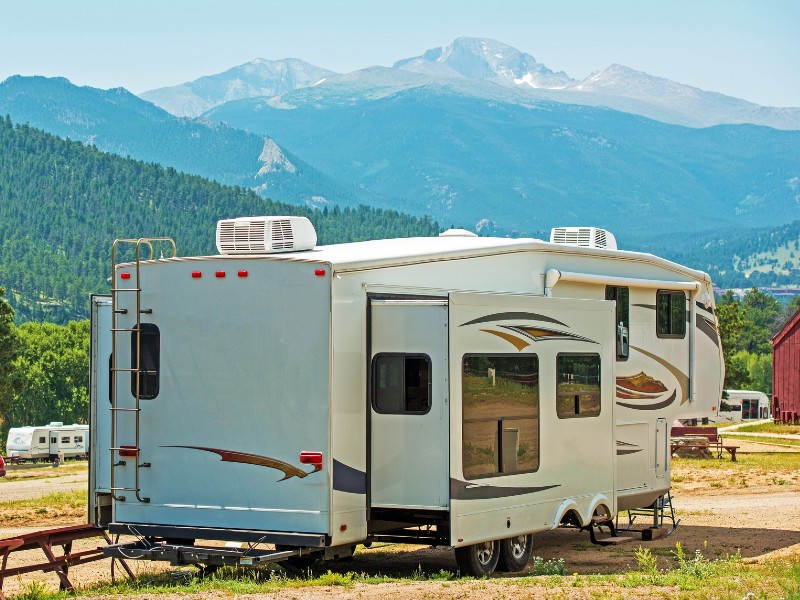Moving your RV on travel days when you have a fridge full of food and drinks may cause stress, but there are tricks to keep an RV fridge cold while driving.
Knowing how to maintain cold temperatures inside your RV fridge while you’re driving can save you the hassle of moving all your items to a cooler with ice or giving away costly food to your camping neighbors, so it doesn’t go to waste.
To help you learn the best way to keep your RV refrigerator cold when you drive, we explain how different RV fridges operate and provide tips to ensure your food and beverages stay cold until you can plug back in to shore power.
Yes, there are ways to stop your RV fridge from not getting cold while driving, so stick around to learn how!
RV Refrigerator Types
Before we offer tips to keep your fridge cold when you drive your RV, you need to know which type of RV refrigerator you have.
There are three basic types of refrigerators found in a recreational vehicle:
- Absorption Refrigerator
- 12-Volt Refrigerator
- Compressor Refrigerator
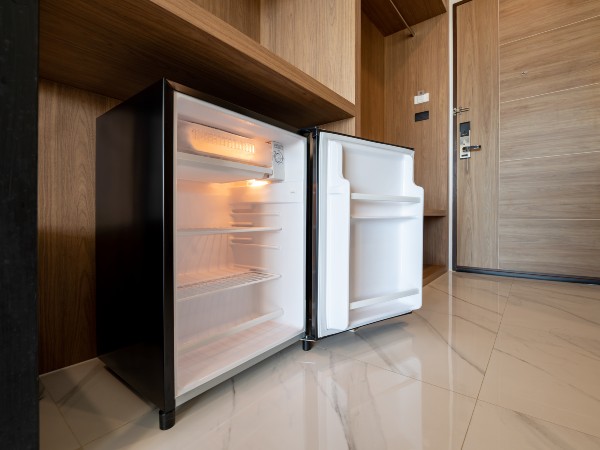
Absorption RV Refrigerator
The most common refrigerator in RVs is a “2-way” or “3-way” absorption refrigerator. This fridge type can operate on 110-volt AC power or propane, with some models also using DC or 12-volt power to run some or all of the components.
If you have an absorption fridge inside your RV, you can run the propane during travel days to keep the items inside cold. However, manufacturers of these fridges warn against such a practice as it could lead to dangerous propane leaks or fires.
The purpose of a multi-power RV refrigerator is so you can run your fridge when you are camping in locations without shore power, whether you choose to use propane (LP), your house battery bank and inverter, or a generator for the task.
12-Volt RV Refrigerator
The strictly 12-volt RV fridge is becoming a very popular appliance in the newer models of RVs. By running off the house battery bank, an RV 12-volt fridge allows you to run it indefinitely off solar if your RV has a system in place.
Other reasons 12-volt fridges for RVs are best are because they run more efficiently, provide a colder and more even internal temperature versus propane-run units, and offer more interior storage space because the cooling unit is smaller.
A small 2-cubic-foot camping fridge, such as those found in teardrop camper kitchens, can run upwards of 50 hours on battery power, while a large 10-cubic-foot RV fridge can operate up to 15 hours on one battery charge.
Compressor RV Refrigerator
An RV fridge with a compressor to cool the unit is nearly always a standard residential-style unit that runs on electricity. You can run a compressor fridge when your RV is plugged into shore power, using a generator, or run it off 12-volt power using your house battery bank and an inverter.
The benefit of a compressor RV fridge is that the interior gets colder than in a multi-power unit. In addition, they work at high altitudes and are much easier and cheaper to replace and install, which is why many RVers switch to this type of fridge when the original breaks.
However, more and more RVers find the 12-volt fridge to be the ideal solution for keeping food cold while also being able to camp off-grid.
Is Driving or Towing an RV While Using Propane Dangerous?
When you drive, and your RV fridge won’t get cold enough to keep your food at a safe temperature, many people find the solution is to run the propane while on the road.
There is a possibility of propane leaks from loose or broken lines caused by bumps and vibrations while driving. If this happens, the gas can build up inside the motorhome or camping trailer, making occupants sick and leading to death. In addition, any spark can ignite the LP gas, causing an explosion and fire.
While the recommendation is never to run your propane while traveling, thousands of RVers do so every year without a problem. In the RV world, taking this risk is a personal one.
Driving With Propane RV Refrigerator Running Concerns
Dangerous To Run RV Fridge On Propane On The Road? (Video)
Aside from gas leaks and the associated fire risks of running your RV propane to keep your fridge cold while driving, there are some other factors to consider before making this decision.
Roadway Rules and Regulations
Many states have laws that forbid travel on roadways, through tunnels, or at refueling stations while operating propane components in a vehicle.
Learning all the rules per state and keeping track can be a hassle, but if you get caught doing something illegal, the consequences won’t be worth it.
If you have to pull over and shut off your propane system, you can still keep your food cold by using the tips below until you can restart the system at your camping destination.
You’ll Need to Increase Your Propane Budget
When you travel while running your propane so your RV fridge stays cold, you’ll use the LP in your tanks that you normally use at your campsite to run the water heater, furnace, oven, stove, and grill.
Expect to spend extra to top off your propane tanks so you’ll have plenty at your campsite. Another hassle may be finding a convenient LP fill station on your travel route.
Driving With RV Generator Running to Cool Fridge Concerns
If your RV has an onboard generator, you can start it, so you have the electrical power necessary to keep your refrigerator cold on travel days.
Be aware that some onboard motorhome generators have a setting to prevent using the unit in this way to avoid damage from overworking the alternator while driving.
You’ll also need to check a multi-powered RV fridge to ensure it switches over to cool on the AC power before driving away. You don’t want to reach your final destination to find all your food has gone bad.
How To Keep Your RV Fridge Cold When Driving
When you need to travel in your RV and want to keep your food cold, you can follow these tips that will help maintain food and drinks at a safe temperature for many hours:
Explore the Great Outdoors with Us!
Load the Refrigerator
The more food in your fridge that is already cold will help the unit maintain that temperature for a longer period.
For any drinks or food items that are safe to do, freeze them first, so you can use them as additional cooling to offset rising internal fridge temperatures while driving your RV.
Water bottles are ideal for freezing, as you can drink them once they thaw out at your campsite or you reach home.
Use RV fridge tension bars to hold food and drinks in place while you drive. You can also use them to make a wall of frozen drink bottles around your meats, so there is less chance it goes bad.
Depending on how long you plan to travel, you may want to place a towel at the base of the refrigerator to absorb any condensation that runs off your items. This will keep things much neater when you open the refrigerator after many hours on the road.
Add a Fan
A portable, battery-operated RV fridge fan is a great gadget to use continuously during the camping season. Still, it’s beneficial when your RV fridge isn’t getting cold enough to keep food safe for consumption.
A fan circulates the cold air evenly throughout the fridge to prevent warm spots. Because these fans are small and run on batteries, they don’t generate much heat while running, which can be a concern otherwise.
Placing a fan, so it first blows across frozen items will increase its effectiveness in keeping the entire RV fridge contents colder.
Lower the RV Fridge and Freezer Temperature
RV Refrigerator Temperature Adjustments (Video)
The day before you travel, it will help to lower the temperature settings in your fridge and freezer by several degrees, so the items inside will be especially cold before you need to shut off the power.
The average temperature people keep in their refrigerator(s) is 38°F. However, if you shut the power off to the fridge and keep the door closed, it will take about 5-8 hours for the temperature to rise inside to above 41°F, which is when bacteria can start growing in abundance and spoil food.
Lowering your RV fridge to 33-35°F several hours before you turn off the unit will give you an extra couple of hours of maintaining food temperatures in a safe range.
Keep the RV Fridge Door Shut
Once you fill the fridge in your recreational vehicle, you’ll want to shut the door and keep it shut until you reach a location to start it again. If you must have access to drinks or food while driving, place those into a separate cooler for the duration of your trip.
Make sure your RV fridge door is securely shut. You can easily use a short piece of duct tape for a quick solution. However, using a RV fridge door lock is an easy way to prevent the doors from popping open accidentally and stop people from automatically opening the door from habit.
Using the tension bars inside the fridge will also prevent food items from shifting and popping the door open while you are driving.
Never peek inside to check the temperature, as it will raise the fridge’s internal temp a critical degree or so. RV refrigerators are very well-insulated, so they should only lose 4-5 degrees during 8 hours if you keep them sealed.
Run the RV Generator or PlugIn During Stops
Whenever you are stopping in your RV for at least 30 minutes, consider running your generator to boost the cooling inside your fridge. This tip is great when you are on a long journey and are boondocking.
Another option is to park your RV where you have access to a standard 110-volt outlet, which you can find around the exterior of buildings or even at some rest stops. If you carry an adapter for your 30-amp or 50-amp RV power plug, you can get your fridge up and running and lower the temperature a degree or two before you return to your travels.
Check to ensure you aren’t going to be getting in trouble for running your generator and causing noise complaints or “borrowing” power from a business if you plug into an outlet.
Test Your RV Fridge Limits
We highly suggest you test out all these tricks while your RV is at home or in storage, so you’ll know how long your particular refrigerator will remain cold.
A trial run is well worth the effort, and if you can, try to test different tactics to keep your RV fridge cold during different seasons of the year. The tips may work to keep your RV fridge cold for 10 hours during fall, but only four hours in the summer.
Also, remember that outdoor weather will extend or shorten the time food stays at a safe temperature inside your RV fridge, so plan accordingly.
Most RVers find that they can easily travel for 4-6 hours and maintain a safe temperature inside their fridge, so food doesn’t spoil. Knowing this can make every camping trip much less stressful and save you money on food.
RV Refrigeration While Driving Wrap Up
Don’t worry about your RV fridge not getting cold enough while driving to keep your food safe.
You can use the helpful information above to install the best RV fridge to suit your needs and choose to run your propane or generator while driving to ensure the unit stays nice and cold.
Or, you can follow the tips to keep food inside your RV fridge cold without power while driving and enjoy a less stressful camping experience!
Related Questions
- What are the different types of RV refrigerators and how do they work?
RV refrigerators come in three main types: absorption, compressor, and thermoelectric.
Absorption refrigerators use a heat source to circulate a mixture of water, ammonia, and hydrogen gas, which cools when it evaporates; compressor refrigerators work like a typical home unit, using a compressor to circulate refrigerant and remove heat from the inside; thermoelectric refrigerators use the Peltier effect to create a heat flux between the junction of two different types of materials, thereby creating a cooling effect.
- Is it safe to run propane while driving or towing an RV?
Yes, it is generally safe to run propane while driving or towing an RV, as many RV appliances like refrigerators and heaters rely on propane for operation.
However, it’s important to turn off the propane supply at the tank during fueling, when entering a gas station, or when traveling through certain restricted areas like tunnels or ferries due to potential fire risks.
- What are some strategies for keeping an RV fridge cold while driving?
One strategy for keeping an RV fridge cold while driving is to pre-cool your fridge for at least 24 hours before your trip, ensuring that the items you put in are already cold or frozen.
Another strategy is to limit the number of times you open the fridge door, use fridge fans to circulate cold air, and consider using a fridge thermometer to monitor the temperature and adjust settings as needed.
- How can I test the limits of my RV fridge?
To test the limits of your RV fridge, you can use a refrigerator thermometer to monitor the temperature while gradually increasing the load with water-filled containers, noting any temperature changes.
Additionally, try operating it under various conditions such as different power sources, and ambient temperatures, and while the RV is in motion to see how these factors affect its performance.
- What are the potential concerns with running an RV generator to cool the fridge while driving?
Running an RV generator to cool the fridge while driving can lead to potential concerns such as excessive fuel consumption and noise pollution.
Additionally, it can pose safety risks, as the generator’s vibration while driving could lead to mechanical issues or even a fire if not properly maintained and ventilated.
"Of all the paths you take in life, make sure a few of them are dirt."
-- John Muir
